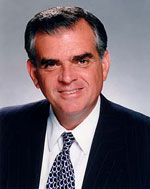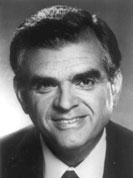| Agency |
Account |
Project |
Amount |
| Agriculture Research Service |
Buildings and Facilities |
National Center for Agricultural Utilization Research, Peoria, IL |
$2,192,000* |
| Agriculture Research Service |
Salaries and Expenses |
Animal Health Consortium, Washington, DC |
$820,000* |
| Agricultural Research Service |
Salaries and Expenses |
Biotechnology Research and Development Corporation, Washington, DC |
$2,503,000 |
| Agricultural Research Service |
Salaries and Expenses |
Crop Production and Food Processing, Peoria, IL |
$786,000* |
| Cooperative State Research Education and Extension Service |
SRG |
Agricultural Marketing, IL |
$176,000 |
| Cooperative State Research Education and Extension Service |
SRG |
Center for One Medicine, IL |
$235,000 |
| Cooperative State Research Education and Extension Service |
SRG |
Future Foods |
$461,000 |
| Cooperative State Research Education and Extension Service |
SRG |
Livestock Genome Sequencing, IL |
$564,000 |
| Cooperative State Research Education and Extension Service |
SRG |
Midwest Poultry Consortium, IL |
$471,000 |
| Cooperative State Research Education and Extension Service |
SRG |
Soybean Research, IL |
$745,000 |
| Department of Commerce |
NOAA–Operations, Research and Facilities |
Illinois State Geological Survey, Illinois Height Modernization, Champaign, IL |
$725,000 |
| Department of Justice |
COPS Law Enforcement Technology |
Cass County Sheriff, 9-1-1 Center Equipment & Communications Upgrades, Virginia, IL |
$515,000* |
| Department of Justice |
COPS Law Enforcement Technology |
City of Lincoln Police Department, Lincoln PD security upgrades, Lincoln, IL |
$25,000* |
| Department of Justice |
COPS Law Enforcement Technology |
East Peoria Police Department, East Peoria Technology Grant, City of East Peoria, IL |
$410,000* |
| Department of Justice |
COPS Law Enforcement Technology |
Logan County Sheriff, Logan County 9-1-1, Lincoln, IL |
$300,000* |
| Department of Justice |
COPS Law Enforcement Technology |
Peoria Police Department and Peoria County Sheriff, City of Peoria radio and technology upgrades, Peoria, IL |
$650,000* |
| Department of Justice |
OJP–Byrne Discretionary Grants |
Jacksonville/Morgan County Underwater Search & Rescue Dive Team, Morgan County Rescue Dive Team, Jacksonville, IL |
$175,000* |
| National Aeronautics and Space Administration |
Cross Agency Support |
Lakeview Museum of Arts & Sciences, Lakeview Museum Planetarium, Peoria, IL |
$250,000* |
| Defense |
DHP |
Pediatric Medication Administration Product and Testing |
$800,000* |
| Defense |
GP |
STEM Education Research Center |
$5,000,000* |
| Defense |
OM,ARNG |
Advanced Trauma Training Course for the Illinois Army National Guard |
$2,400,000 |
| Defense |
PA,A |
Small Caliber Trace Charging Facilitization Program |
$1,200,000 |
| Defense |
PA,AF |
PGU-14 API Armor Piercing Incendiary, 30mm Ammunition |
$2,400,000 |
| Defense |
RDTE,A |
302 Advanced Battery Technology |
$4,000,000 |
| Defense |
RDTE,A |
High Explosive Air Burst (HEAB) 25mm Ammunition |
$4,400,000 |
| Defense |
RDTE,AF |
Scorpion Low Cost Helmet Mounted Cueing and Information Display System |
$4,000,000 |
| Corps of Engineers |
Investigations |
Illinois River Basin Restoration, IL |
$382,000 |
| Corps of Engineers |
Investigations |
Peoria Riverfront Development, IL |
$48,000 |
| Corps of Engineers |
Investigations |
Upper Miss River-Illinois WW System, IL, IA, MN, MO & WI |
$8,604,000 |
| Corps of Engineers |
Construction |
Upper Mississippi River Restoration, IL, IA, MN, MO & WI |
$17,713,000 |
| Corps of Engineers |
Section 206 |
Emiquon Preserve, IL |
not disclosed |
| Corps of Engineers |
Section 205 |
Meredosia, IL |
not disclosed* |
| Corps of Engineers |
Section 1135 |
Spunky Bottoms, IL |
not disclosed* |
| Corps of Engineers |
O&M |
Illinois Waterway, IL & IN (MVS Portion) |
$1,772,000 |
| Department of Energy |
EERE |
Green Building Technologies, Bradley University (IL) |
$475,750* |
| Environmental Protection Agency |
STAG Water and Wastewater Infrastructure Project |
County of Peoria, Regional Storm Water Plan Implementation |
$500,000* |
| Department of Education |
Higher Education |
Illinois College, Jacksonville, IL for a teacher preparation program, including curriculum development |
$190,000* |
| Department of Health and Human Services |
Health Resources and Services Administration (HRSA) – Health Facilities and Services |
Memorial Medical Center, Springfield, IL for the Intelligent Pharmacy and Automated Drug Management electronic medical records initiative |
$666,000 |
Department of Health and Human Services |
Health Resources and Services Administration (HRSA) – Health Facilities and Services |
OSF Healthcare System, Peoria, IL for an electronic medical records initiative |
$95,000 |
| Department of Health and Human Services |
Health Resources and Services Administration (HRSA) – Health Facilities and Services |
University of Illinois College of Medicine at Peoria, Peoria, IL for facilities and equipment |
$381,000 |
| Institute of Museum & Library Services |
Museums & Libraries |
Lakeview Museum of Arts and Sciences, Peoria, IL for exhibits |
$95,000* |
| Architect of the Capitol |
House Office Buildings |
Renovation of the Jacksonville Bandstand |
$95,000* |
| Military Construction |
Air NG |
Illinois, Greater Peoria RAP, C-130 Squadron Operations Center |
$400,000 |
| Department of Transportation |
Buses and Bus Facilities |
Paratransit Vehicles, west Central Mass Transit District, IL |
$104,500* |
| Department of Transportation |
Buses and Bus Facilities |
Replacement of Paratransit Vehicles, Greater Peoria Mass Transit District, Peoria, IL |
$380,000* |
| Department of Housing and Urban Development |
Economic Development Initiatives |
Lakeview Museum of Arts and Sciences, Peoria, IL for planning and construction of a new building that will highlight the achievement and skills of art, history, science and achievement |
$95,000* |
| Department of Housing and Urban Development |
Economic Development Initiatives |
OSF HealthCare System, Peoria, IL for planning, design and construction of a Hospice Home |
$332,500* |
| TOTAL* (requested solely by LaHood) |
$14,190,750 |
| GRAND TOTAL (all earmarks listed above) |
$54,341,000 |
It struck me as I read through this list that LaHood did not request one large earmark for the proposed downtown museum, but instead has comparatively little earmarks sprinkled throughout the omnibus bill — a few thousand here for exhibits, a few thousand there for the planetarium, etc. I would imagine that he did the same in previous years, thus spreading the earmarks out over time as well.
With all this federal money coming in, one wonders why the museum partners need a county sales tax, too.
But getting beyond that, the fact that LaHood has so many earmarks in the mammoth appropriations bill (and the fact that he’s no longer in Congress, and the fact that President Obama made a campaign promise to veto any legislation with earmarks) has the mainstream media taking notice. ABC News’ Senior Political Reporter Rick Klein noticed and listed several of the projects LaHood earmarked — including the Lakeview earmarks. And Fox News is all over it as well:
In LaHood’s case, the former Republican Illinois congressman wrote a March 19, 2008, letter asking Congress set aside funding to move the “Jacksonville bandstand” from one of the House office buildings to the National Museum of American History in Washington. LaHood also earmarked funds for police radio upgrades, agriculture research and equipment at a planetarium in Peoria, Ill. . . .
Congressional Scholar Tom Mann of the Brookings Institution cautions that some of these earmarks are merely extensions of existing programs. Mann noted that earmarks authored by former members of Congress may have merit. But Mann concedes that doing last year’s bill in February 2009 enables these former legislators to continue to wield power long after they’ve left office.
“It sounds bizarre that there are earmarks by members who are no longer in Congress,” Mann said. “There are historical legacies to actions taken by politicians.”
But Mann has questions for House appropriators who authored the bill and allowed the old spending requests to linger.
“Did they feel they were bound by these earmarks? Were they scrubbed by the staff?” he asked. . . .
Still, others wonder if it’s appropriate for the ghosts of former lawmakers to continue to have power.
One congressional aide who requested anonymity asked whether the lawmakers who replaced the old members would advocate the same earmarks.
“Their legislative priorities might be different. Those members were lobbied and decided to write that earmark. And now we’re going to leave it in even though (the former member) isn’t here any more?” the aide asked.
 An interview with Transportation Secretary Ray LaHood was published by the New York Times about a week and a half ago. I guess you have to admire the guy’s candor, but it’s a little disconcerting to read that our transportation secretary admittedly knows little about transportation and only got the job because (a) he’s a Republican, and (b) he’s good buddies with Rahm Emanuel.
An interview with Transportation Secretary Ray LaHood was published by the New York Times about a week and a half ago. I guess you have to admire the guy’s candor, but it’s a little disconcerting to read that our transportation secretary admittedly knows little about transportation and only got the job because (a) he’s a Republican, and (b) he’s good buddies with Rahm Emanuel. 
 The
The